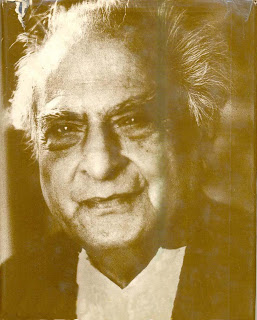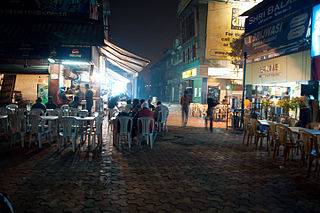
Jawaharlal Nehru was an Indian statesman who was a central figure in India during the middle of the 20th century. Nehru was second only to Mahatma Gandhi in leading the Indian nationalist movement in the 1930s and 1940s, and upon independence from Britain in 1947 served as India's first prime minister until his death in 1964. A secular humanist and social democrat, Nehru championed parliamentary democracy, secularism, science and technology, influencing India's arc as a modern nation. In international affairs, he kept India out of the two blocs of the Cold War and was a founder of the Non-Aligned Movement. Nehru was also a prolific author in English, and his works including An Autobiography (1936) and The Discovery of India (1946) have been read and deliberated upon around the world.

Lal Bahadur Shastri was an Indian politician and statesman who served as the Prime Minister of India from 1964 to 1966. He previously served as Home Minister from 1961 to 1963.
Ashoka was a monarch of the Mauryan Empire of India.
Events in the year 1954 in the Republic of India.

Motilal Nehru was an Indian lawyer, activist, and politician affiliated with the Indian National Congress. He served as the Congress President twice, from 1919 to 1920 and from 1928 to 1929. He was a patriarch of the Nehru-Gandhi family and the father of Jawaharlal Nehru, India's first Prime Minister.

Braj Kumar Nehru MBE, ICS was an Indian diplomat and Ambassador of India to the United States (1961–1968).

Nehru Place is a large commercial centre in Delhi, India. Although its importance as a financial centre has declined in recent years, Nehru Place is still a prominent commercial area in South Delhi and houses the headquarters of several Indian firms and rivals with other financial centres in the metropolis like Connaught Place, Bhikaji Cama Place and Rajendra Place.
Events in the year 1955 in the Republic of India.

Kamala Nehru was an Indian independence activist and the wife of Jawaharlal Nehru, the first prime minister of India. Their daughter Indira Gandhi would go on to become the first and to date, the only female Prime Minister of India.
The following lists events that happened during 1962 in the Republic of India.
Events in the year 1951 in the Republic of India.

Parmeshwar Narayan Haksar was an Indian bureaucrat and diplomat, best known for his two-year stint as Prime Minister Indira Gandhi's principal secretary (1971–73). In that role, Haksar was the chief strategist and policy adviser behind Gandhi's early years and her establishment of strong authority in the 1970s. After this he was appointed deputy chairman of the Planning Commission and then the first-ever chancellor of New Delhi's Jawaharlal Nehru University.

New Friends Colony is a posh residential colony of South Delhi, India. It consists of A, B, C, D Blocks. It is situated near Uttar Pradesh border.
Kaul is a Kashmiri surname that is used by the Kashmiri Pandit community in India.
Nehru Park may refer to these parks in India named after the first Indian prime minister Jawaharlal Nehru:

The Nehru–Gandhi family is an Indian political family that has occupied a prominent place in the politics of India. The involvement of the family has traditionally revolved around the Indian National Congress, as various members have traditionally led the party. Three members of the family—Jawaharlal Nehru, Indira Gandhi and Rajiv Gandhi—have served as the prime minister of India, while several others have been members of parliament (MP).

Dyal Singh College is a co-educational institute of University of Delhi. It was established in 1959 in Delhi, India. It is a constituent college of Delhi University. It comes under South Campus of Delhi University and is a top ranked college of South Campus. It offers undergraduate as well as postgraduate courses in science, the humanities and commerce.
The Jawaharlal Nehru Trust Scholarship U.K. was founded by Admiral Lord Mountbatten of Burma in 1966 as a tribute to the India's first Prime Minister – Jawaharlal Nehru – after his death in 1964.

The Principal Secretary to the Prime Minister of India is the administrative head of the Prime Minister's Office. The officeholder is generally a civil servant, commonly from the Indian Administrative Service and occasionally from the Indian Foreign Service.
This page is based on this
Wikipedia article Text is available under the
CC BY-SA 4.0 license; additional terms may apply.
Images, videos and audio are available under their respective licenses.










